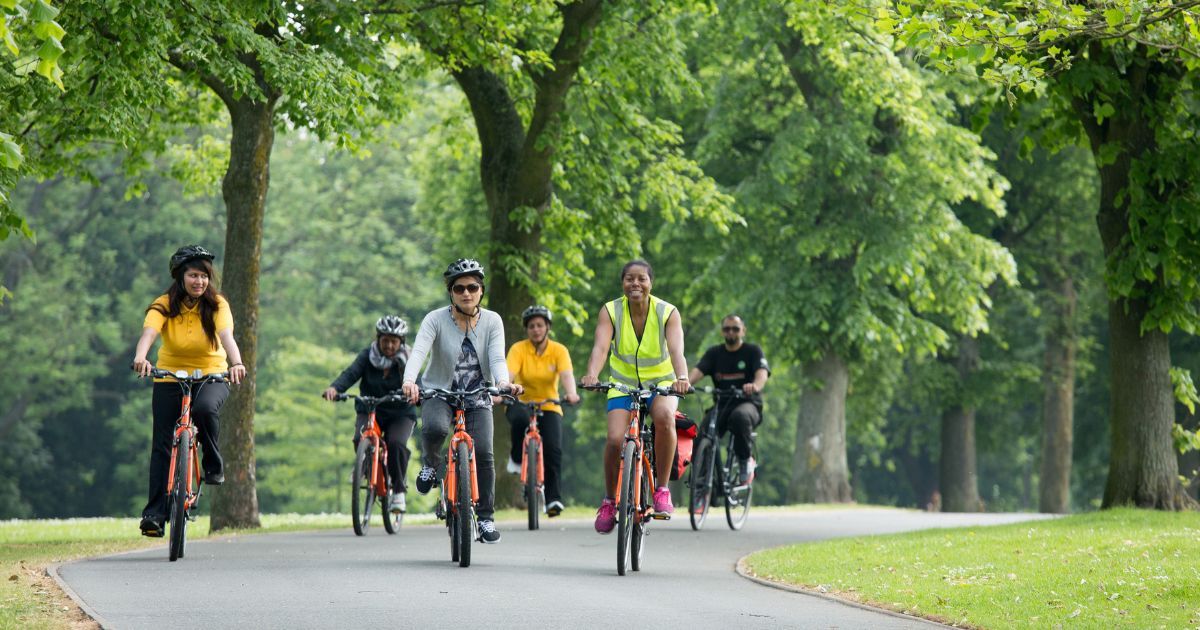
Photo Credit: The Active Well-Being Society (formerly Big Birmingham Bikes) / Ashden
(Words by Climate Barometer team, originally posted on the Climate Barometer blog)
It’s well established that the UK climate sector is very unrepresentative in terms of ethnic diversity – but climate opinion data is too often under-representative too.
Only around 1 in 20 people working in environmental charities identify as a person of colour, and campaigns often fail to reach diverse audiences.
At the same time, many ‘nationally representative’ survey samples either don’t contain high enough numbers of appropriate quotas for people of colour, or do not report them. When they do, the numbers tend to be too low to make meaningful comparisons. The voices and perspectives of people of colour should be central to the UK climate discourse, but too often they are not, whether through a lack of representation in opinion data, or a lack of representation in the climate sector itself.
People of colour in the UK are disproportionately affected by climate change impacts, but there is a paucity of research around their experience of and engagement with climate change. The Spotlight report, published by a team led by Dr Charles Ogunbode at the University of Nottingham in 2023, was astonishingly the first dedicated exploration of the views and perspectives of British people of colour on climate change through a large-scale survey.
In collaboration with CAST affiliate Dr Charles Ogunbode and the Centre for Climate Change & Social Transformations (CAST), Climate Barometer re-analysed some of the Spotlight data, along with recent data from the annual CAST ‘climate views’ survey, in order to provide some preliminary findings around ethnicity and engagement with climate change.
This initial analysis suggests that people of colour in the UK are likely to have experienced a range of climate impacts personally, see climate change as a serious, urgent threat, and express high levels of support for ambitious climate policies. However, the current evidence base is very limited and sample sizes don’t allow for robust comparisons to be made between different minority ethnic and racial groups. So there’s a real need for more insights to better guide campaigns and strategies – something that forms the central call of the report.
Survey samples which are representative of ethnicity matter on their own terms. However, improving diversity in climate engagement (and the climate movement) requires more attention to ethnicity in opinion research.
Researchers, research funders, insights commissioners and campaigners have the power to make a positive impact by:
- Allocating and distributing budgets to permit truly representative samples, prioritising work which describes a much more nuanced, inclusive, and richer picture of public opinion on climate change.
- Designing and amplifying research, communications and engagement materials that tell stories reflecting how people of colour in Britain experience and engage with climate change
- Ensuring that the stories told about the green transition are truly representative of British society, and that the climate movement better reflects the diversity of the country.
To find out more, read the full report and sign up for the free CAST webinar on September 9, 2024, from 12 – 1 pm (BST) where we’ll be discussing the findings and recommendations from the report.
Follow us on Bluesky and LinkedIn and subscribe to our newsletter for future updates from the CAST team.
